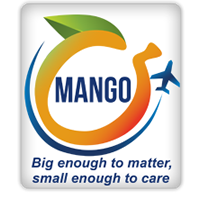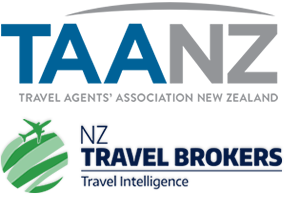Travel advisories and information about your destination
We recommend you do some research before you go.
Check the Ministry of Foreign Affairs and Trade’s travel advice for the country/countries you plan to visit. You can also check out travel advice produced by the governments of Australia, Canada, the United Kingdom and the United States of America[external links].
Purchase a guide book for the regions you are visiting (or borrow one from your local library) and read up on local laws and customs, places of interest, etc.
Vaccinations, medication, prescriptions
About six to eight weeks before you plan to travel check with your travel agent or your doctor to see if any vaccinations or immunisations are required for the areas you are travelling to. A health professional can also provide information on how to stay well while travelling.
If you take medication it is suggested you carry an additional supply in case your trip is unexpectedly extended. We recommend you also carry a duplicate of any prescriptions you have, including your prescription for glasses or contact lenses.
Passport: check expiry date, ensure there are clear visa pages, sign your passport & make copies
Check that you have a valid passport. Many countries require a passport to be valid for at least six months beyond your intended departure form the country. Make sure you have at least one clear page in your passport for immigration stamps.
Information on obtaining a New Zealand passport may be found at the Department of Internal Affairs [external link].
Take a copy of your passport with you and leave a copy at home with a trusted friend or family member.
Visas
You should check with your travel agent or with the Embassy or High Commissions of the countries you intend to visit or transit to find out their visa / entry requirements and if you need to apply for a visa. You should do this well before your planned departure date to ensure you have the correct visa. The New Zealand Ministry of Foreign Affairs and Trade can not provide this information. If you do not have the required visa, you may be refused entry to a country. Having a visa does not necessarily guarantee entry into another country; this decision rests with immigration officials.
Health and travel insurance
Do not leave New Zealand without comprehensive travel and medical insurance – treatment of a minor injury or a hospital admission can be very expensive in some countries. Ask your travel agent, bank or doctor for available options and carry evidence of your insurance cover at all times.
Make sure it covers the activities you will be undertaking, and any pre-existing medical conditions.
The Insurance Council of New Zealand provides more information on travel insurance and a list of Insurance Council members on their website [external links].
International driver’s licence (if needed)
You may require an International Driving Permit to drive in another country. This is proof that you hold a valid New Zealand driver’s licence. Further information can be found at the Automobile Association website [external link]
Money: local currency, travellers’ cheques, etc
Check with your bank or credit card company as to what credit cards are recommended and whether ATM facilities are readily available in the countries you are visiting. Consider purchasing travellers’ cheques. Have some cash already exchanged, for your transit and arrival.
Before you leave New Zealand, decide how you will get emergency funds if you need them.
Registration with the Ministry of Foreign Affairs and Trade
It is recommended you record your itinerary and travel details with the Ministry of Foreign Affairs and Trade. This is voluntary and the information provided will be used for consular purposes only, for example, in the case of an emergency.
Itinerary and other documents
Finally, give a detailed copy of your itinerary, including accommodation details, and your travel insurance policy to a relative or friend so they are able to get in touch with you if necessary or access your insurance provider if required. Remember, if you change your itinerary, do let your relatives/friends know. Keep them updated.
Make copies of other important documents such as your birth certificate, credit cards and driver’s licence, both to take with you and to leave at home with a trusted friend or family member.








